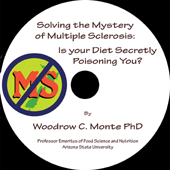Diabetes and obesity are linked to autism
Diabetes, Hypertension, Obesity Linked to Autism
Study Suggests Women With These Conditions May Have Greater Risk of Having an Autistic Child
By Kathleen Doheny
WebMD Health News Reviewed by Laura J. Martin, MD
May 11, 2011 (San Diego) — Women who have diabetes, high blood pressure, or are obese before pregnancy are more likely to have a child with autism, according to new research.
“For mothers with at least one of these conditions, there was a 60% increased risk for autism in the offspring,” says Irva Hertz-Picciotto, PhD, an autism researcher at the University of California, Davis MIND Institute.
She presented her findings at the International Meeting for Autism Research in San Diego.
Autism and autism spectrum disorders (ASD) are a group of developmental disorders that can cause significant social, communication, and behavioral problems. About one in 110 U.S. children has ASD, according to CDC estimates. Recent research from South Korea has suggested the number may be much higher.
Seeking Clues on Development of Autism
For the study, Hertz-Picciotto and her colleagues evaluated 1,001 children. Of that group, 508 had autism or ASD, 178 had developmental delays, and 315 were typically developing children.
All were enrolled in the ongoing CHARGE study (CHildhood Autism Risks from Genetics and the Environment).
Researchers retrieved information on type 2 diabetes, obesity before the pregnancy, and high blood pressure by doing telephone interviews with the mothers and looking at medical records.
After adjusting for factors such as a mother’s education, the researchers found that mothers of children with ASD were about 60% more likely to have one of the three conditions.
The mothers of children who were delayed developmentally were about 150% more likely to be obese before pregnancy, have diabetes, or have high blood pressure.
“This again is further evidence there is potentially metabolic disruption and some sort of inflammatory pathway [linking the conditions],” Hertz-Picciotto says.
The researchers decided to explore the link due to recent statistics showing an increase in diabetes, obesity, and high blood pressure and the parallel rise in autism rates.
Second Opinion
The new research finding a link between diabetes and autism reflects findings of some earlier studies, according to Geraldine Dawson, PhD, chief science officer for Autism Speaks, an advocacy group and a sponsor of the meeting.
”We have known from previous studies that a family history of autoimmune disease such as type 1 diabetes increases the risk of autism,” she tells WebMD. She reviewed the study findings but was not involved in the research.
”What is interesting about this is, she has broadened the scope,” Dawson says, by including obesity and high blood pressure in addition to diabetes.
While no one can explain the mechanism of the link found, Dawson says it is more evidence that the prenatal environment is important in preventing autism and researching its causes.
Fluctuating glucose levels that can occur in diabetes that is not well controlled may affect adversely the unborn baby, speculates Alycia Halladay, PhD, a researcher for Autism Speaks, who also reviewed the study findings.
Hertz-Picciotto and Halladay can’t say whether keeping blood glucose under tight control might reduce the risk of having a child with autism.
The best advice for now for women who are obese before pregnancy, have high blood pressure, or have diabetes? “See a high-risk obstetrician,” Halladay suggests.
That advice applies, she says, to women who develop high blood pressure or diabetes during the pregnancy as well as to those who have it when they become pregnant.
This study was presented at a medical conference. The findings should be considered preliminary as they have not yet undergone the “peer review” process, in which outside experts scrutinize the data prior to publication in a medical journal.


